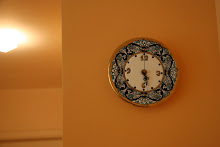
這晚大約七時許
放下工作一大堆
帶著勞累的身驅
到大會堂看劇去
重覆演奏的音樂
來回打出的字幕
反覆播放的錄像
一式一樣的燈光
肚子在咕嚕咕嚕
友人在呼嚕呼嚕
若你今夜也看過
希望不要埋怨我
【《香港風格 HK Style》 進念‧二十面體 18.8.2006 8pm 香港大會堂劇院】
~~~~~~~~~~~~~~~~~~~~~~~~~~~~~~~~~~~~~~~~~~~~~~~~~~~
後記 (1) :
把Vicio 的回應抄來, 當中有南華早報的評論, 給大家參考。
 Vicio 2006/08/22 11:49:39 /
Vicio 2006/08/22 11:49:39 / I went to see a couple of stage performances by 進念 a long long time ago. I could hardly understand what the hack they were trying to do or to say. Having said that, I must say I love to live in a society in which people like Zuni could still survive and be free to express their ideas in such way and there are people like you who will go to see their performances.
To share with you a review by Clarence Tsui from today's (re 22.8.2006 ) South China Morning Post.
"Mathias Woo's Hong Kong Style 2 which was published last month is one of the most accessible and thoughtful anthologies of essays about urban planning to have been published in Hong Kong. Sadly, his 70-minute stage production of the same name simply doesn't compare.
One big, undercooked idea, empty stage and a 50-minute video projection, followed by a meandering 20- minute coda, with painist Edgar Hung playing Chopin in front of sets from past Zuni productions.
Surely, Woo regards the production as more than just a visual appendage to his book- not to mention some extra money. But what does he intend it to be?
Therein lies the production's fundamental flaw: Hong Kong Style is not emotional enough to be merely a lving ode from Woo about "trying to forget a place I love", as in some of his previous works such as A Lover's Discourse. Here Woo appears distant, and his insistence on emoting in quotation marks is a major turn off."
To share with you a review by Clarence Tsui from today's (re 22.8.2006 ) South China Morning Post.
"Mathias Woo's Hong Kong Style 2 which was published last month is one of the most accessible and thoughtful anthologies of essays about urban planning to have been published in Hong Kong. Sadly, his 70-minute stage production of the same name simply doesn't compare.
One big, undercooked idea, empty stage and a 50-minute video projection, followed by a meandering 20- minute coda, with painist Edgar Hung playing Chopin in front of sets from past Zuni productions.
Surely, Woo regards the production as more than just a visual appendage to his book- not to mention some extra money. But what does he intend it to be?
Therein lies the production's fundamental flaw: Hong Kong Style is not emotional enough to be merely a lving ode from Woo about "trying to forget a place I love", as in some of his previous works such as A Lover's Discourse. Here Woo appears distant, and his insistence on emoting in quotation marks is a major turn off."
後記 (2) :
既然那麼多網友問這齣戲是否好看, 又見到 Vicio 的回應, 讓我再補充一些。
接觸進念是始於石頭記 (很多年前), 當時年紀還小, 看過甚麼也不太記得。之後一直不敢再接觸這個劇團, 隨著年紀漸大, 看劇多了, 開始對一些實驗性的演出有興趣, 卻也一即未敢再試...
直至這幾年他們和「非常林奕華 」合作多了, 我看過一些他們的製作, 感受開始有點不同。有一些我也非常喜歡 (如半生緣)。
看這次的演出之前也有充足心理準備這個「多媒體劇場 」不會是個熱鬧的製作。可是, 現時錄像, 音樂, 影像, 文字之間的聯繫似乎不大。胡恩威嘗試把他對現時城市設計摒棄了舊市區或值得保留的一些特色 (如小販, 屋村), 一些舊感覺 , 與愛人分手和忘記一個充滿回憶的地方相題並論。
看著一些舊建築物, 舊屋村的相片, 比對著簇新的大型商場, 一式一樣的私人屋苑, 是有點唏噓。那一次又一次重覆的問題「忘記一個人與忘記一個地方有甚麼分別」, 我想就是想質疑現在的城市規劃刪除了一些值得保留的舊事物, 也連帶除去了社會的舊記憶, 也影響著社會裡的人的文化與生活狀態。
以一個70 分鍾的製作來帶出這個命題, 實在不容易, 那一個又一個的問題和片段式的文字, 只讓觀眾找不著重心。始終, 我們不是在看書... 上文所說的20 分鐘尾聲, 只是重複了之前整個演出的音樂, 錄像和文字。
有人說這些實驗性的演出是曲高和寡, 劇場是要與觀眾溝通, 令人看不明白的戲就是有問題。又聽過有人說若觀眾看不明白一齣戲是他們未夠水準, 劇場是要啟發思考, 不應只是把肥皂劇搬上台演出。
兩邊的論據也有他們的道理。只想說, 創作人必然有話說 (不然做演出幹嗎), 婆婆卻鼓吹多元化發展, 讓社會上不同人士尋找他們發聲的途徑, 和自己認同的聲音。

沒有留言:
發佈留言